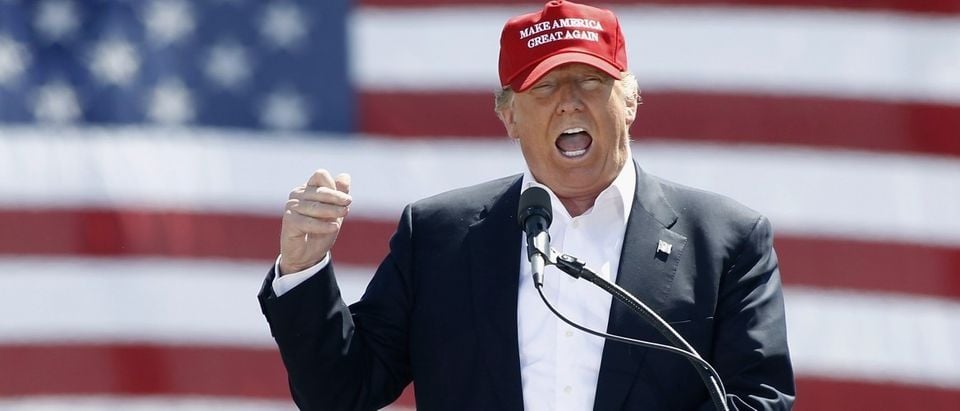Over at RealClearPolitics, my friend and former boss, Carl Cannon, raises a provocative notion: Donald Trump helps ISIS.
How does he do that?
In “Terror in the Name of God,” a scholarly book I’d recommend to Donald Trump—and our current commander-in-chief, for that matter—Boston University professor Jessica Stern documents why jihadists launch terrorist attacks against innocents in the U.S. and Europe. One reason is to make moderate Muslims living in the West—a vast swath of the world community that ISIS leaders term the “gray zone”—feel afraid. Another is to fuel the kind of backlash represented by Trump and his followers.
“They want to make Muslims in the West feel unsafe,” she said. “They also want to increase prejudice against Muslims in the West.”
This is a really frustrating and disturbing technique. The goal of terrorists is to increase polarization and spur more animosity between people. The goal is to drive people apart. The bad guys don’t want comity; their plan actually requires stirring up trouble—in order to swell their ranks—and perpetuate the cycle of violence.
But while Cannon’s point is that Trump is making their jobs easier, it occurs to me that this technique is pretty close to what Trump does—albeit, with less deadly consequences.
Intentional, or not (and I have my suspicions), Trump benefits from stoking fear and polarization.
I’m not the only one to have observed that the Black Lives Matter or other liberal protests (from shutting down Trump’s rally in Chicago to shutting down traffic in Phoenix) help Trump in the same way that hippies and anti-war protesters helped elect Richard Nixon. Think of it this way, the more things remind you of the 1960s and 70s, the better it is for Trump.
I actually believe Trump benefits when anything bad happens, but he cannot and does not cause every bad thing to happen (even if he exploits it). But he can cause unrest with his political events. The cycle is easy to observe. Trump creates a toxic environment at his rallies. This, in turn, leads to protests. Protests get out of hand and make Trump the victim. And it does something else: It angers—and scares—-a lot of white middle Americans who might otherwise (in a more harmonious era) prefer a Republican other than Trump. In essence, like liberalism itself, Trump’s brilliance is that he creates a problem that only he is strong enough to fix.
(For their part, it’s entirely possible the liberal protesters are also engaged in a game whereby they “win” by creating discord. Maybe they know they’re helping Trump win a Republican primary based on the assumption that he would surely lose the General Election?)
As is the case with most of Trump’s techniques, it’s nothing new. There’s an old book called Dedication and Leadership by a guy named Douglas Hyde—who was a former Communist, turned Catholic convert. In it, Hyde basically lays out all the techniques that Communists would use to recruit people to their cause, and there are some similarities.
One of the tricks was to take new recruits on the very first day and, instead of giving them an easy task, assign them a horrible job trying to convert strangers in some public place. But the goal wasn’t really to convert anyone new, that was just a front. The real goal was to lock the new converts into their commitment. Here’s how it happened: You’d go up and approach a stranger, who would then reject you, insult you, or even spit on you. The psychological impact to this is counterintuitive. Rather than giving up, you are much more inclined to double down on your new-found belief system.
People who are flirting with Trump will, when confronted with an angry mob (on TV, or in real life), become fervent Trump supporters. Peace does not help Donald Trump. The lack of protests does not help Donald Trump. The absence of discord does not help Donald Trump. No, like some alien in Star Trek, he seems to feed off of fear and violent emotions. And the good news for him is that these are qualities in no short supply these days—thanks, in part, to his campaign.


